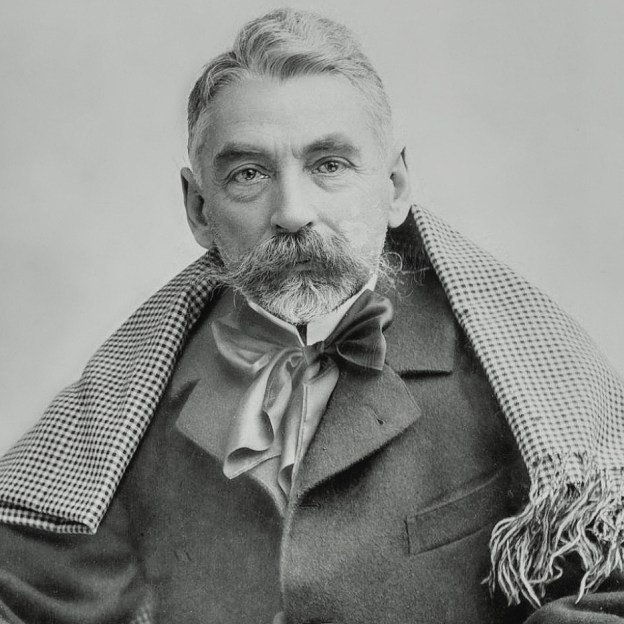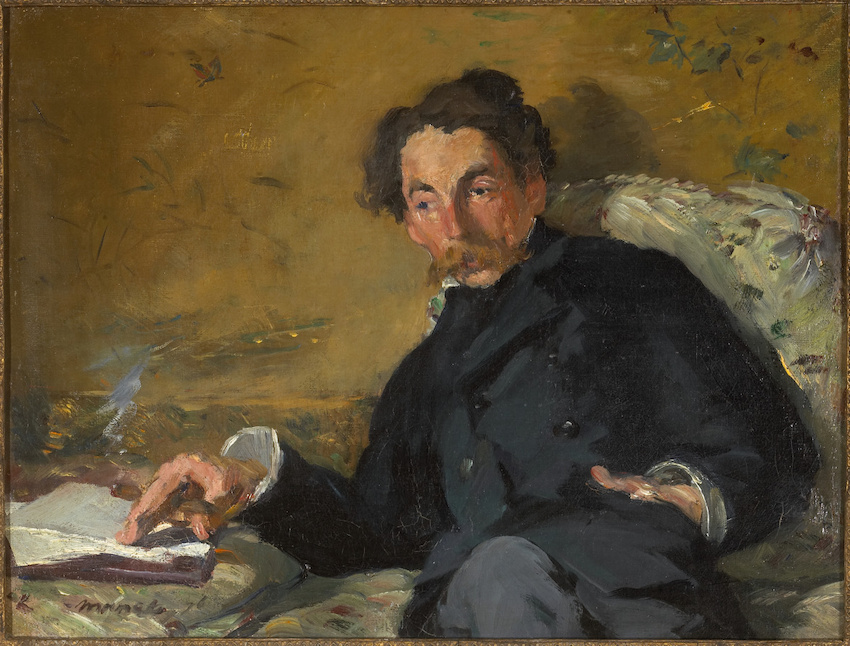
FEATURE image: Stéphane Mallarmé, 1896, by Nadar.
Stéphane Mallarmé (1842-1898) is an important Symbolist poet of the last half of the 19th century in France. Throughout his writing career, Mallarmé helped formulate and express the rising anti-naturalism in contemporary art. This movement’s inclinations mainly took the form of Symbolism – that is, the fascination with many types of literature and the inclination to draw upon these sources for inspiration in dreams and visions. Although Mallarmé’s poetry is verbally dense and difficult with fleeting imagery, the poet was influential in modern art circles. The poet hosted a weekly salon in Paris known as “les jeudis” which provided a social network for many leading modern thinkers and practitioners, such as Édouard Manet, Edgar Degas, Odilon Redon, Paul Gauguin and Edvard Munch.
Mallarmé was born in Paris in 1842 into a family of civil servants. His mother died when he was 5 years old and his younger sister when he was 15. It was around the time of his sister’s death that Mallarmé wrote his first poetic essays, influenced by Romantics and early Symbolist writers and poets Victor Hugo, Théophile Gautier, Charles Baudelaire and Edgar Allan Poe. His first poems were published in 1862. Mallarmé earned a teaching certificate in the English language, studied in London and married a young German woman he met in France. Mallarmé began a teaching career in 1863 in Tournon in the Ardèche, where his daughter was born in 1864. He also was teaching in Besançon and Avignon. Outside of Paris, Mallarmé did not prosper as a teacher and viewed his assignments with disdain as necessary modes of employment. The young man turned to poetry as a means of escape. It was between 1863 and 1866 that Mallarmé wrote some of his renown poems: Brise marine, L’Azur, Les Fleurs, a version of L’Après-midi d’un faune. His collection of poems published in Le Parnasse contemporain in 1866 led to Mallarmé’s first notoriety.
In 1871, Mallarmé, now a father of a family with two children, was assigned to teach in Paris and settled near the new Saint-Lazare train station. His social network of artists and writers blossomed in this period. In 1873 Mallarmé met Édouard Manet who soon illustrated Mallarmé’s translation of American writer Edgar Allan Poe’s Raven, published in 1875. In 1876 Manet painted his portrait that is now in the Musée d’Orsay.
Mallarmé’s 8-year-old son died prematurely at the end of the 1870s and Manet died a few short years later in 1883. Mallarmé formed new friendships with Berthe Morisot and her daughter Julie Manet, whose guardian Mallarmé became at the death of his parents. Mallarmé also became friends with other leading avant-garde artists and poets such as Claude Monet and Pierre-Auguste Renoir. To the general reader, Mallarmé was criticized as a crazy poet who used unintelligible verse. Yet to avant-garde literati such as Paul Verlaine and Joris-Karl Huysmans, Mallarmé’s demanding poetry they publicly admired.
In 1892 appeared Vers et Prose, a major collection of Mallarmé’s poems. The frontispiece was a lithographed portrait by James Abbott McNeill Whistler, with whom Mallarmé was a close friend. In the early 1890s Mallarmé came into contact with the “Nabis,” young Post-Impressionists such as Pierre Bonnard, Maurice Denis and particularly Édouard Vuillard. In the 1890’s Mallarmé’s Paris salon was frequented by the young Paul Valéry.
At 51 years old, in 1893, Mallarmé retired from teaching and stayed in his small house of Valvins. He died there on September 9, 1898, at the age of 56. In these final years, Mallarmé’s recognition and fame remained high. It was part of the vivacity and dynamism of literary and artistic circles for which Mallarmé had been one of its inspirations since the 1870s. In 1896 Mallarmé’s influence included his being elected as Prince des poètes and inheriting the seat occupied by the recently deceased Paul Verlaine.
SOURCE: https://www.musee-mallarme.fr/fr – retrieved July 4, 2022.
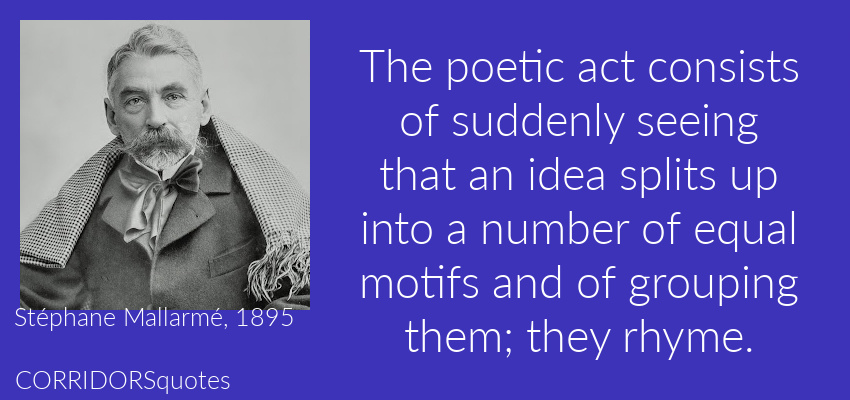
The poetic act consists of suddenly seeing that an idea splits up into a number of equal motifs and of grouping them; they rhyme.

You don’t make a poem with ideas, but with words.
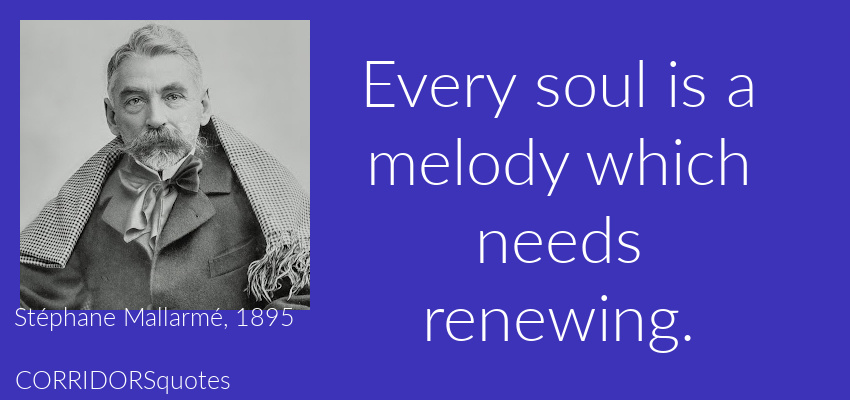
Every soul is a melody which needs renewing.
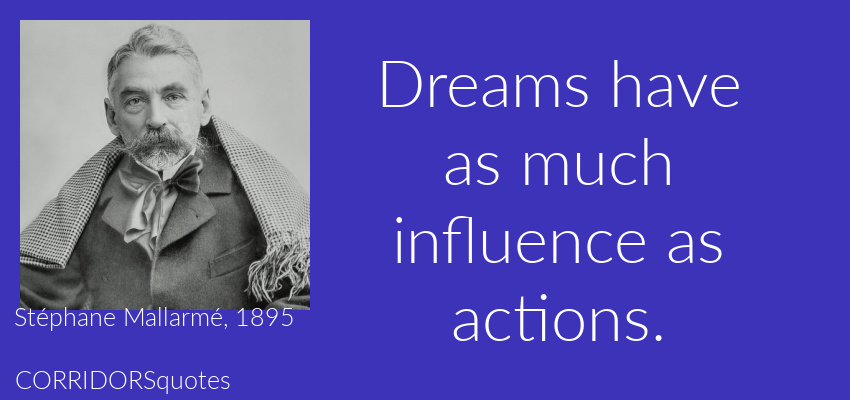
Dreams have as much influence as actions.

That virgin, vital, beautiful day: today.
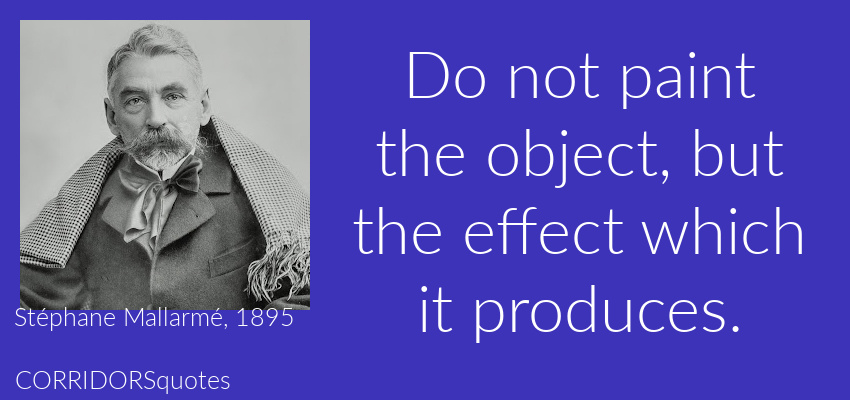
Do not paint the object, but the effect which it produces.



